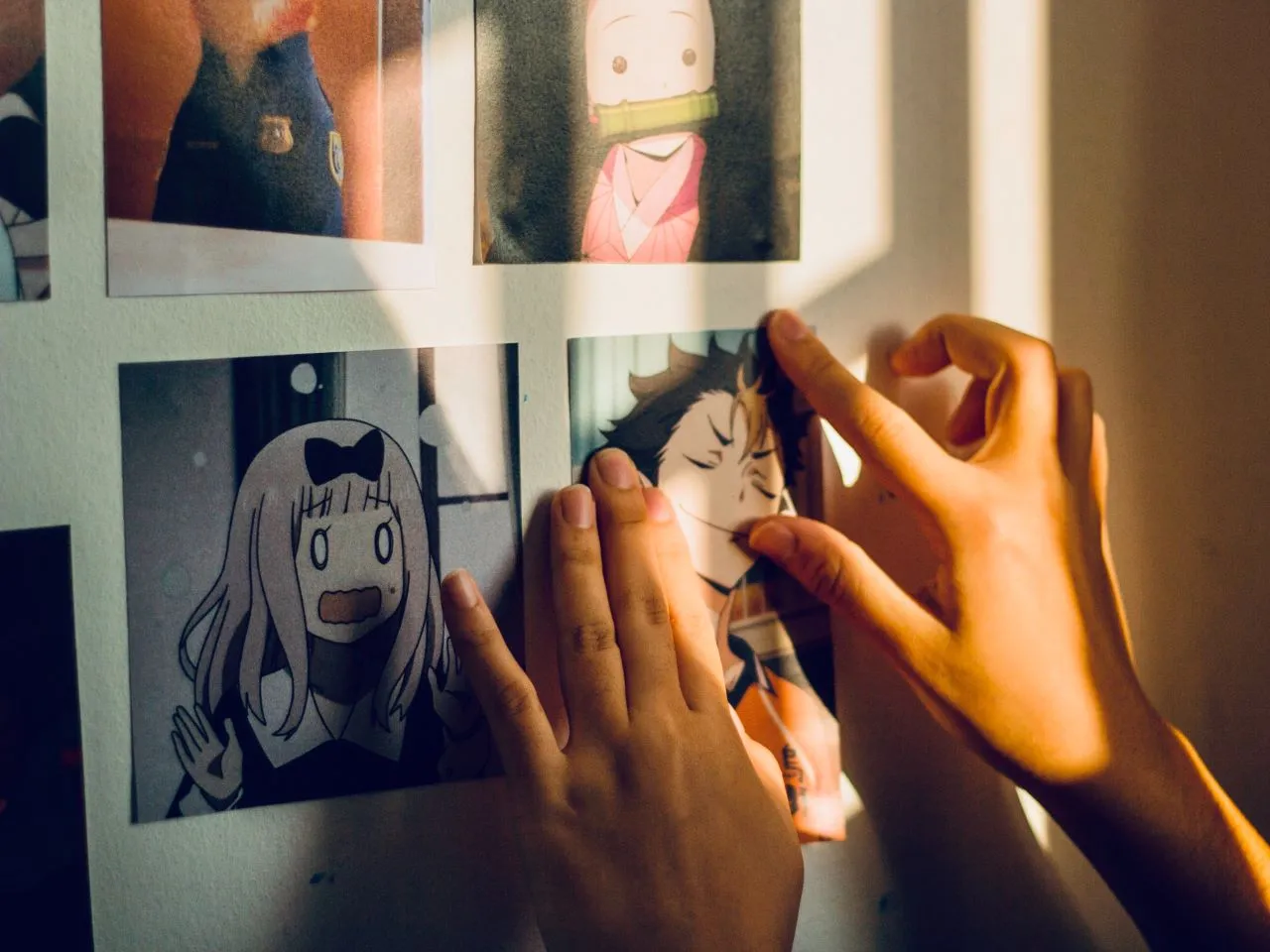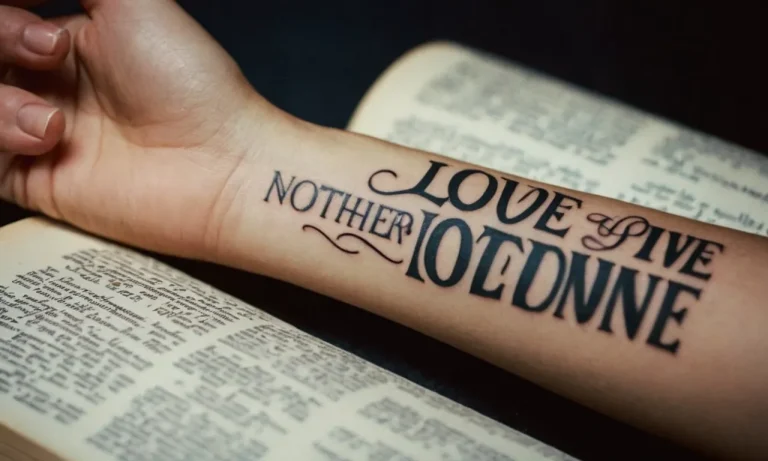Christian Moms Against Anime: Examining The Concerns And Controversies
Anime, once a niche interest, has now become a major part of mainstream pop culture. However, some Christian parents believe anime promotes problematic themes and behaviors. This comprehensive guide will dive into the various concerns raised by Christian moms against anime, trace the rise of anime, and explore the debate surrounding appropriate Christian engagement with this artistic medium.
In brief: Some Christian moms criticize anime for containing violence, sexualized characters, and morally questionable themes. But others see anime’s storytelling power and argue it should be judged individually, not wholesale condemned.
This article will investigate the complex social and generational dynamics surrounding this debate.
By exploring both sides’ perspectives, we can better understand the controversy over Christianity’s relationship to anime and pop culture at large. We’ll also consider how to evaluate and critique entertainment media with wisdom and grace.
The Growth of Anime and Its Many Styles
Over the past few decades, anime has experienced a remarkable growth in popularity, evolving from a niche interest to a mainstream phenomenon. Anime, which is a style of animation originating from Japan, has captivated audiences around the world with its unique storytelling, vibrant visuals, and diverse range of genres.
Whether you’re a fan or not, it’s hard to deny the impact that anime has had on pop culture.
From Niche to Mainstream Pop Culture
Once considered a niche interest limited to a small group of passionate fans, anime has now infiltrated mainstream pop culture. This can be attributed to several factors, including the rise of streaming platforms like Netflix and Crunchyroll, which have made anime more accessible to a global audience.
Additionally, the increased availability of dubbed and subtitled versions of popular anime series has made it easier for non-Japanese speakers to enjoy the medium.
The influence of anime can be seen in various aspects of popular culture, from fashion trends inspired by iconic anime characters to the inclusion of anime references in movies, TV shows, and even music videos.
In fact, many Western animated series and films have also been influenced by the distinct art style and storytelling techniques of anime.
It’s important to note that the growth of anime has not been without controversy. Some critics argue that anime promotes violence, sexualization of characters, and other problematic themes. However, it’s essential to approach these concerns with an open mind and recognize that anime, like any other form of entertainment, can vary greatly in content and themes.
Shonen vs Shojo: Anime’s Diverse Genres and Audiences
One of the fascinating aspects of anime is its diverse range of genres, each catering to different audiences and interests. Two popular genres worth exploring are shonen and shojo anime.
Shonen anime is primarily targeted towards young boys and adolescent males. These series often feature action-packed storylines, epic battles, and themes of friendship, determination, and self-improvement. Examples of well-known shonen anime include “Dragon Ball Z,” “Naruto,” and “One Piece.”Shojo anime, on the other hand, is aimed at young girls and adolescent females. These series tend to focus on romance, coming-of-age stories, and emotional journeys. Common themes in shojo anime include love triangles, personal growth, and self-discovery.
Some popular shojo anime titles include “Sailor Moon,” “Fruits Basket,” and “Ouran High School Host Club.”
While shonen and shojo anime are often associated with their respective target demographics, it’s important to note that these genres can be enjoyed by anyone, regardless of gender or age. Anime has the power to transcend boundaries and connect with viewers on a deeper level, regardless of their background.
Concerns and Criticisms Raised by Christian Moms
Sexualization of Characters
One of the major concerns raised by Christian moms regarding anime is the sexualization of characters. They argue that many anime shows and movies depict female characters in revealing outfits and provocative poses, which they believe promotes a hypersexualized and objectifying view of women.
This can be especially troubling for Christian moms who strive to teach their children about modesty and respect for oneself and others.
According to a study conducted by the American Psychological Association, sexualized media can have negative effects on children and adolescents, including increased body dissatisfaction and the objectification of women.
While not all anime content is explicit or sexual in nature, some Christian moms feel that the prevalence of sexualized characters in anime is a cause for concern.
Violent and Mature Themes
Another concern often raised by Christian moms is the presence of violent and mature themes in anime. Many anime series and movies explore dark and intense subjects such as death, violence, and psychological trauma.
Christian moms worry that exposure to these themes can desensitize their children to real-life violence and negatively impact their moral development.
While it is true that some anime content is intended for mature audiences, it is important to note that not all anime falls into this category. There are many anime shows and movies that are suitable for all ages and promote positive values such as friendship, perseverance, and selflessness.
It is worth mentioning that parental guidance and monitoring are crucial when it comes to children’s media consumption, including anime. By actively engaging with their children and discussing the themes and messages portrayed in anime, Christian moms can help guide their children’s understanding and interpretation of the content they consume.
Moral Relativism vs Christian Values
Christian moms also express concerns about the potential clash between the moral relativism often depicted in anime and their own Christian values. Anime often explores complex moral dilemmas and presents different perspectives on right and wrong.
Some Christian moms worry that exposure to these differing moral viewpoints may confuse or challenge their children’s understanding of their faith.
It is important to note that not all anime promotes moral relativism. There are many anime shows and movies that convey positive moral messages and align with Christian values, such as compassion, forgiveness, and redemption.
By selectively choosing age-appropriate and morally sound anime content, Christian moms can ensure that their children are exposed to positive influences while enjoying the medium.
The Case for Anime Appreciation
While there may be concerns and controversies surrounding anime, it is important to recognize that there is a case to be made for appreciating this unique form of entertainment. Anime has gained a significant following worldwide, captivating audiences with its diverse storytelling, stunning visuals, and thought-provoking themes.
By exploring the artistic merit, positive messages, and the importance of discernment, it becomes clear that anime should not be dismissed outright but rather approached with an open mind.
Valuing the Artistic Merit
Anime is more than just animated cartoons; it is a form of art that showcases intricate details, stunning visuals, and innovative storytelling techniques. From the breathtaking animation of Studio Ghibli films like “Spirited Away” to the visually striking landscapes of “Attack on Titan,” anime has proven itself to be a medium that pushes the boundaries of creativity.
By appreciating the artistic merit of anime, we can gain a deeper understanding of the skill and craftsmanship that goes into its production.
Finding Themes of Goodness and Redemption
Contrary to the perception that anime is solely filled with violence or inappropriate content, many anime series explore themes of goodness, redemption, and personal growth. Take, for instance, the popular series “Fullmetal Alchemist,” which delves into complex moral dilemmas and emphasizes the importance of empathy and sacrifice.
Anime can serve as a powerful medium for discussing and reflecting upon these universal themes, providing viewers with valuable life lessons.
Using Discernment, Not Wholesale Rejection
While it is crucial to exercise discernment in selecting anime content, it is equally important not to dismiss the entire medium based on a few negative examples. Just as in any form of entertainment, there will always be a range of content, some of which may not align with personal values or beliefs.
However, by approaching anime with an open mind and being selective in choosing series that align with one’s preferences, it is possible to find meaningful and enriching experiences within the genre.
Bridging Generational Gaps in Media Perspectives
As media continues to evolve, it is not uncommon for different generations to have differing perspectives on what is acceptable content. One area where this generational gap is particularly evident is in the discussion surrounding anime, a form of Japanese animation that has gained popularity worldwide.
Christian moms, in particular, have expressed concerns and controversies regarding the influence of anime on their children. However, it is important to bridge these gaps and develop a mutual understanding between different generations.
Developing Mutual Understanding
One way to bridge the generational gap in media perspectives is to engage in open and respectful conversations. Christian moms and their children can come together to discuss their concerns and perspectives on anime.
This dialogue can help both parties gain insight into each other’s viewpoints and foster empathy. By actively listening and seeking to understand each other’s concerns, it becomes possible to find common ground and work towards a solution that satisfies both parties.
Additionally, educating oneself about anime can also help in developing a mutual understanding. Christian moms can take the initiative to learn more about the different genres, themes, and cultural aspects of anime.
This knowledge can provide a basis for informed discussions and debunk any misconceptions or stereotypes that may exist. Websites like Anime News Network and Crunchyroll offer a wealth of information about anime, making it easier to understand its appeal and significance to younger generations.
Setting Healthy Boundaries
While it is important to understand and respect each other’s perspectives, it is equally crucial to set healthy boundaries when it comes to consuming media. Christian moms can establish guidelines for their children regarding the types of anime that align with their values and beliefs.
These boundaries can include avoiding anime with explicit content, violence, or themes that contradict their faith. By setting clear expectations and communicating openly about these boundaries, both the concerns of the moms and the interests of the children can be addressed.
Furthermore, parents can also encourage their children to explore other forms of media that align more closely with their values. This could include books, movies, or television shows that promote positive messages and reflect Christian beliefs.
By offering alternative options, parents can provide a balanced media diet for their children and help them develop discernment when it comes to consuming media.
Conclusion
While debates over anime and appropriate media for Christians will likely continue, we can move forward with empathy, critical thinking, and openness to other viewpoints. By evaluating anime and culture through a gracious Christian lens, we can uphold our values while also gaining meaningful insight into this artistic medium treasured by millions worldwide.








